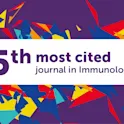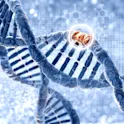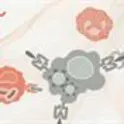
Frontiers news
28 Jun 2017
Frontiers journal ranking analysis: Immunology
With an Impact Factor of 6.429, Frontiers in Immunology is the 5th most cited Immunology journal in the world

Frontiers news
28 Jun 2017
With an Impact Factor of 6.429, Frontiers in Immunology is the 5th most cited Immunology journal in the world

Health
28 Apr 2017
Frontiers in Immunology is honored to announce a memorial Research Topic dedicated to Dr William Erwin Paul and his unparalleled contribution to immunology.

Frontiers news
07 Aug 2016
Melanoma Affects the Composition of Blood Cell-Derived Extracellular Vesicles Nina Koliha, Ute Heider, Tobias Ozimkowski, Martin Wiemann, Andreas Bosio and Stefan Wild* Probiotic Lactobacilli Modulate Staphylococcus aureus-Induced Activation of Conventional and Unconventional T cells and NK Cells Maria A. Johansson, Sophia Björkander*, Manuel Mata Forsberg, Khaleda Rahman Qazi, Maria Salvany Celades, Julia Bittmann, Matthias Eberl and Eva Sverremark-Ekström* M1- and M2-Type Macrophage Responses Are Predictive of Adverse Outcomes in Human Atherosclerosis Monica de Gaetano, Daniel Crean, Mary Barry and Orina Belton* Association Study for 26 Candidate Loci in Idiopathic Pulmonary Fibrosis Patients from Four European Populations Amit Kishore, Veronika Žižková, Lenka Kocourková, Jana Petrkova, Evangelos Bouros, Hilario Nunes, Vladimíra Loštáková, Joachim Müller-Quernheim, Gernot Zissel, Vitezslav Kolek, Demosthenes Bouros, Dominique Valeyre and Martin Petrek* Transcriptome Analysis of B Cell Immune Functions in Periodontitis: Mucosal Tissue Responses to the Oral Microbiome in Aging Jeffrey L. Ebersole*, Sreenatha S. Kirakodu, M. John Novak, Luis Orraca, Janis Gonzalez Martinez, Larry L. Cunningham, Mark V. Thomas, Arnold Stromberg, Subramanya N. Pandruvada and Octavio A. Gonzalez Transforming Growth Factor-β-Activated Kinase 1 Is Required for Human FcγRIIIb-Induced Neutrophil Extracellular Trap Formation Omar Rafael Alemán, Nancy Mora, Ricarda Cortes-Vieyra, Eileen Uribe-Querol and Carlos Rosales* Porcine CD3+NKp46+ Lymphocytes Have NK-Cell Characteristics and Are Present in […]

Frontiers news
05 Jul 2016
Aerobic Exercise Reduces Asthma Phenotype by Modulation of the Leukotriene Pathway Ricardo Wesley Alberca-Custódio, Flávia Regina Greiffo, BreAnne MacKenzie, Manoel Carneiro Oliveira-Junior, Adilson Santos Andrade-Sousa, Gustavo Silveira Graudenz, Angela Batista Gomes Santos, Nilsa Regina Damaceno-Rodrigues, Hugo Caire Castro-Faria-Neto, Fernanda Magalhaes Arantes-Costa, Milton De Arruda Martins, Asghar Abbasi, Chin Jia Lin, Marco Idzko, Ana Paula Ligeiro Oliveira, Hinnak Northoff and Rodolfo Paula Vieira* Genetic Diagnosis Using Whole Exome Sequencing in Common Variable Immunodeficiency Patrick Maffucci, Charles A. Filion, Bertrand Boisson, Yuval Itan, Lei Shang, Jean-Laurent Casanova and Charlotte Cunningham-Rundles* Deficient Neutrophil Extracellular Trap Formation in Patients Undergoing Bone Marrow Transplantation Jared W. Glenn, Mark J. Cody, Meghann P. McManus, Michael A. Pulsipher, Joshua D. Schiffman and Christian Con Yost* Peptidylarginine Deiminase Inhibitor Suppresses Neutrophil Extracellular Trap Formation and MPO-ANCA Production Yoshihiro Kusunoki, Daigo Nakazawa, Haruki Shida, Fumihiko Hattanda, Arina Miyoshi, Sakiko Masuda, Saori Nishio, Utano Tomaru, Tatsuya Atsumi and Akihiro Ishizu* Complement Component C1q Programs a Pro-Efferocytic Phenotype while Limiting TNFα Production in Primary Mouse and Human Macrophages Holly J. Hulsebus, Sean D. O’Conner, Emily M. Smith, Chunfa Jie, and Suzanne S. Bohlson* Differential Expression of Immune Checkpoint Modulators on In Vitro Primed CD4+ and CD8+ T Cells Nina C. Sabins*, Benjamin C. Harman, Linda R. […]

Frontiers news
05 Jul 2016
Frontiers announces the appointment of Professor Luigi Notarangelo, Boston Children’s Hospital, Harvard Medical School, as the new Field Chief Editor for Frontiers in Immunology, effective on July 13, 2016. Professor Luigi Notarangelo, a world renowned expert in primary immunodeficiencies, has agreed to expand his role in the Journal from his current function as Specialty Chief Editor of the Primary Immunodeficiency section of Frontiers in Immunology. His numerous scientific achievements include the identification of gene defects that contribute to severe combined immune deficiencies (SCID) and the development of novel treatment for children severely affected by congenital immunodeficiencies. In addition to his scientific research, Professor Notarangelo plays an active role in many professional societies, including being the President of the European Society for Immune Deficiencies from 2002-2006 and of the Clinical Immunology Society in 2015-2016, and co-chairing the Committee on Primary Immunodeficiencies of the International Union of Immunological Societies (IUIS). We also thank our outgoing and founding Field Chief Editor for the Journal, Professor Kendall Smith from Weill Medical College of Cornell University for his years of service to the community. Publishing across 18 specialty sections, including such multidisciplinary subject areas as Cancer Immunity and Immunotherapy, Frontiers in Immunology now has over 2500 editors from top institutions all over […]

Life sciences
29 Apr 2016
We celebrate the day of Immunology with an interview with Sergio Rosenzweig, Deputy Chief of the Immunology Service at the Clinical Center, NIH and the Co-Director of the Primary Immunodeficiency Clinic, NIAID, NIH and Associate Editor for Frontiers in Immunology and for Frontiers in Pediatrics. After more than 20 years of experience as pediatrician and researcher in the field of primary immunodeficiencies, Dr Rosenzweig has no doubt: the best is yet to come. “It is a fascinating time to be practicing medicine: if you take into consideration that the first genome was sequenced in 2003 and just six years later, in 2009, the first patient that diagnosed using next-generation sequencing, with a test cost reduction of 1 million times (from approximately 1billion dollars to 1 thousand dollars, that is just amazing” he said. Through omics technologies, the field of primary immunodeficiencies field is evolving at an exponential rate “We discover, on average, more than one new gene associated with primary immunodeficiencies per month”, he explained, “and this is teaching us so much: we thought we knew about those diseases, but now we are completely rethinking the way we study them.” Can you tell us a bit more about primary […]

Health
23 Feb 2016
This month’s Frontiers Staff Pick comes from Victor Kouassi. Victor is a Journal Operations Assistant and before joining us at Frontiers, was at the Francis Crick Institute in London where he conducted research on the immune responses of malaria. With his background in this field, he found the article “Major Histocompatibility Complex and Malaria: Focus on Plasmodium vivax Infection” interesting. It was published in Frontiers in Immunology late January 2016. Below is why he selected this article as his staff pick: There are over 100 species of Plasmodium, the parasite that causes malaria. These can infect many kinds of animals from monkeys, birds to lizards. This parasite has evolved an intricate life cycle by taking advantage of an invertebrate vector, the mosquito. A vertebrate host, like a human, is usually infected through a bite which transmits the parasite which goes straight to the liver. The parasite then divides into merozoites which are released into the blood. It is this form of the parasite that causes the symptoms of disease by entering red blood cells and eventually causing them to explode resulting in fevers, chills, headaches and, in worst case scenarios, coma, brain damage and miscarriages. Of the five species of Plasmodium that […]

Health
29 Oct 2014
A new Frontiers in Immunology Research Topic brings together the stories of those at the forefront of modern-day immunology “In the highly competitive world of biomedical science, often the rush to publish and to be recognized as ‘first’ with a new discovery, concept or method is lost in the hurly burly of the moment, as ‘the maddening crowd’ moves on to the next ‘new thing’. One of the great things about immunology today is that it has only matured as a science within the last half-century, and especially within the past 35 years as a consequence of the revolution of molecular immunology, which has taken place only since 1980. Consequently, most of those who have contributed to our new understanding of how the immune system functions are still alive and well, and still contributing. “‘A Living History of Immunology’ intends to collate as many stories as possible from the investigators who actually performed the experiments that have established the frontiers of immunology. Accordingly, we are after the ‘truth’, to combat ‘revisionist science’, by those who want to alter history by telling the stories a different way than actually happened. In this regard, one of the good things about science versus […]
Get the latest research updates, subscribe to our newsletter